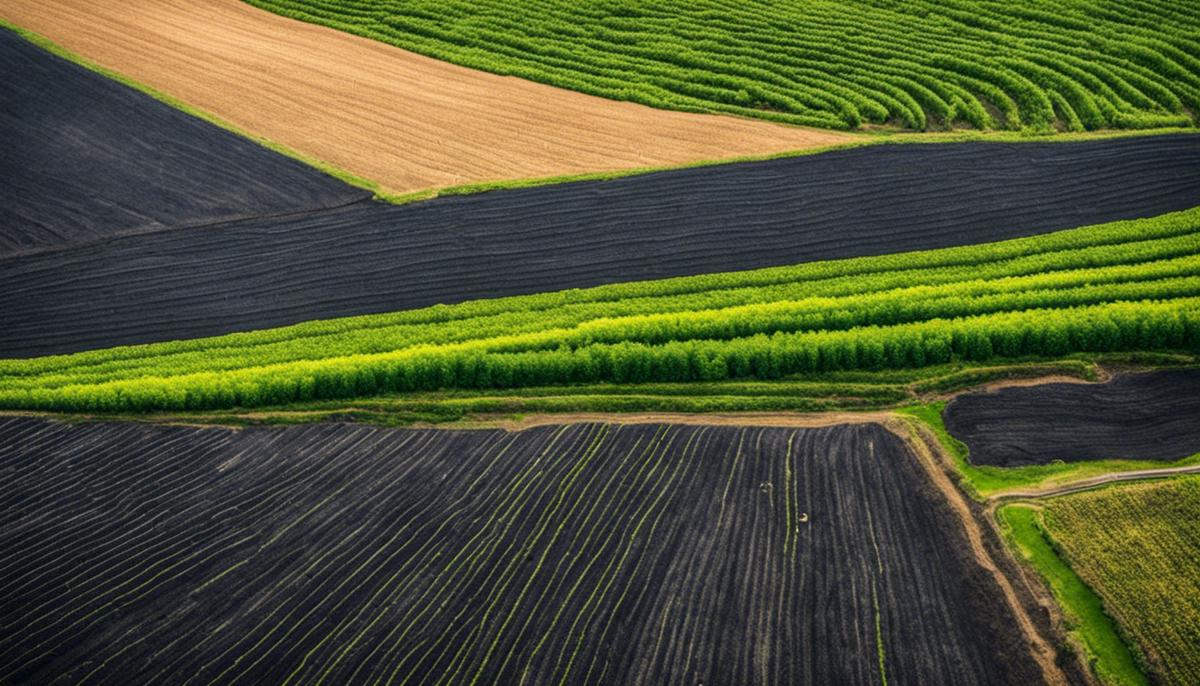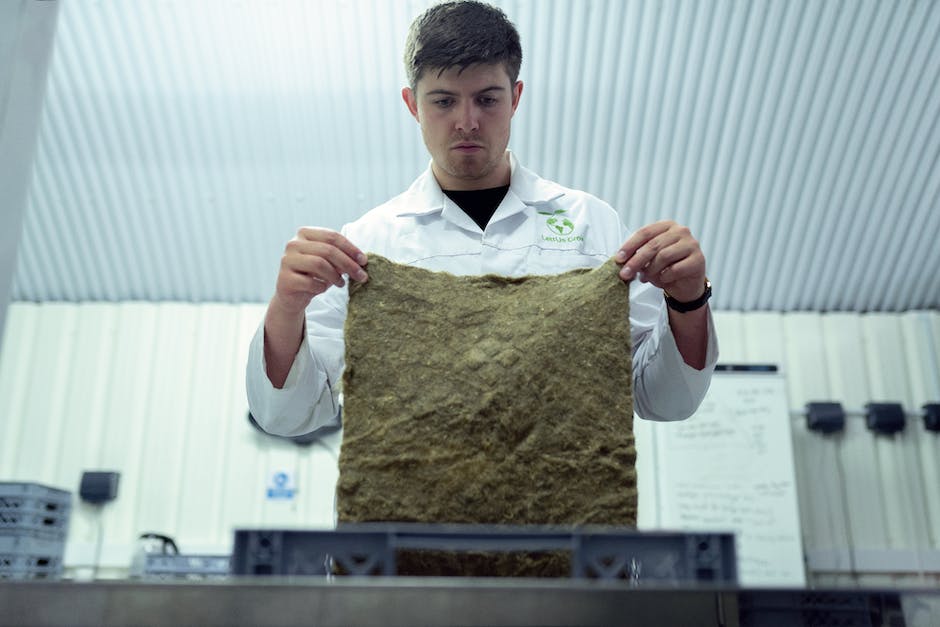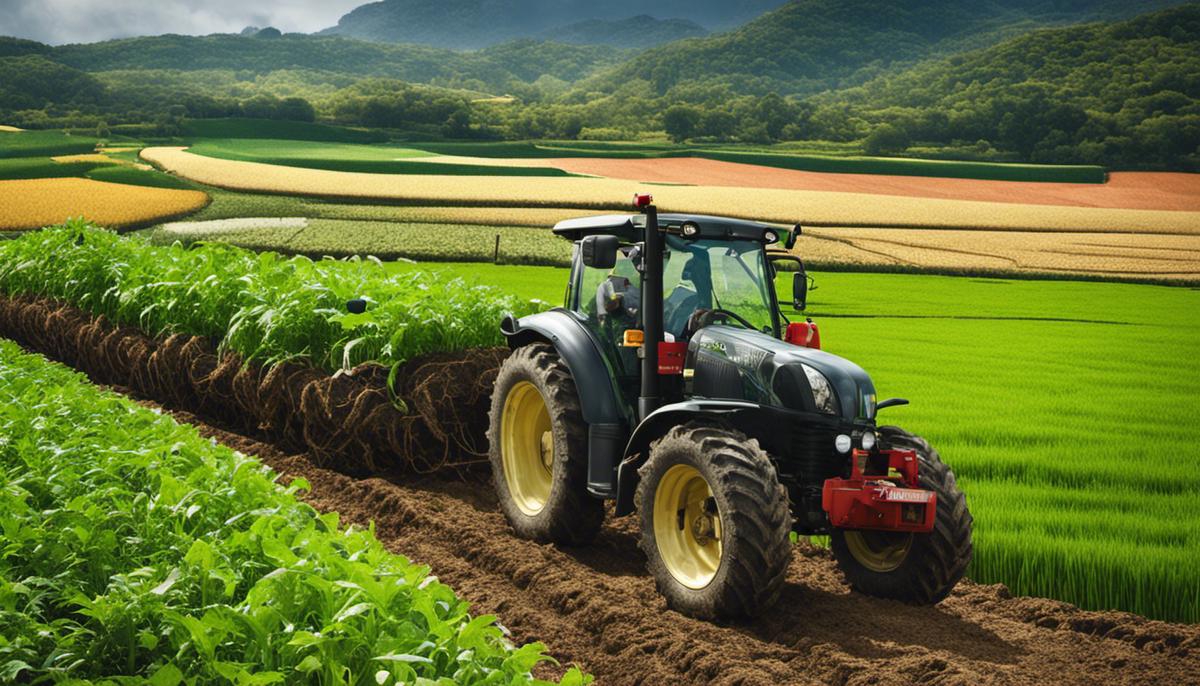
What is Sustainable Agriculture?
Description: When consider the critical intersection of global food production and ecological conservation, the concept of Sustainable Agriculture emerges as a game-changer in our quest for a sustainable and abundant future. As a dynamic, ever-evolving approach to farming, Sustainable Agriculture is more than just a farming technique - it's a fundamental shift in our understanding of how we interact with and depend on the natural environment. By laying a strong foundation in the understanding of Sustainable Agriculture, analyzing its necessity in the contemporary context, delving into its unique techniques, and critically evaluating its challenges and future, this review aims to provide a comprehensive understanding of this groundbreaking concept. Defining Sustainable Agriculture: An Intricate Concert of Practices and Principles Elevating the discourse on sustainable agriculture requires exhuming the roots of the concept and grapple with its very essence in a way that transcends its oft-perceived surface simplicity. We shall explore the definition and depth of the term as well as its intended applications. Sustainable agriculture, at its most basic level, signifies an agricultural method securing a nation's food supply while preserving the environment's capacity to produce that food over extended periods. As rife with utilitarian intent and austerity as this definition may seem, it proves to be a superficial glance toward the rich tapestry of strategies, practices, and outcomes that frame the throbbing heart of sustainable agriculture. Diving deeper into this multidimensional concept, sustainable agriculture leverages a comprehensive framework, balancing environmental health, economic profitability, and social equity. This dynamic triad shapes its underlying structure, vividly expressing its motive to both fulfill today's nutritional requirements and to safeguard our environment and future generations. Evolutionary paths of agriculture have often jeopardized biophysical sustainability, leading to an exploration of innovative farming practices that echo fundamental sustainable agriculture principles. This discipline promotes biodiversity, efficient use of resources, soil fertility enhancement, minimal use of non-renewable resources, and reduced reliance on synthetic chemicals. The intentionality to supplement, rather than eradicate, incumbent ecosystems aids in mitigating climate change impacts, protecting wildlife habitats, and reinforcing a biodiverse and robust agricultural landscape. Economic sustainability, another robust pillar of sustainable agriculture, collaborates with the goal of longevity in agricultural practices. It endorses a financial model that is both profitable and fair, focusing on the economic resilience of farms and farming communities, fostering independence, and decelerating monopolistic tendencies in the food production ecosystem. Extending the economic contour, sustainable agriculture acknowledges the social dimension, linking principles of equity, equality, and ethical considerations. It significantly emphasises supporting rural livelihoods, fair trade, food security for all, and respect for farm workers' rights, illustrating its inclusivity and holistic intent. Sustainable agriculture is a tool in the quest to address the labyrinth of agricultural and food issues. Analyzing the concept in its completeness unveils an intricate nexus of scientific principles, practical innovation, economic stability, social justice, and ecological balance. It is not caged within momentary, piecemeal solutions but is an evolving mosaic of strategies, a dynamic entity that adapts to various locations, climates, cultures, and socio-economic conditions. Embodying multidisciplinarity, the principles and techniques embedded within sustainable agriculture burgeon beyond mere practice, to craft a concept that hovers at the intersection of environment, society, and economy. The semantic clarity and systematic understanding of this concept are integral to driving constructive dialogue, formulating policies, and fostering global agricultural resilience in biological and socio-economic landscapes. The Essence of Transformative Change: The Imperative of Implementing Sustainable Agriculture Sustainable agriculture's strategic role in driving global food resiliency is palpable in the 21st century. With the human population on a trajectory towards eight billion, the topic is imperative to address the mounting pressure on our planet's agricultural systems. Beyond sustaining the increasing demand, concerns encompassing critical elements of environmental health, social equity, and economic profitability, intricately intertwine. A shift towards sustainable agricultural practices acknowledges the symbiotic relationship among these crucial components and proactively takes necessary steps towards securing a resilient global food system. The criticality of sustainable agriculture in assuaging the looming threat of resource depletion cannot be underestimated. With finite resources at our disposal, it is imprudent to pursue agricultural practices that exhaust these resources beyond their capacity for renewal. Instead, sustainable agriculture, premised on environmentally beneficial practices such as crop rotation, controlled grazing, and intercropping, provides a roadmap for consistent and efficient use of resources without escalating the strain on our environment. Furthermore, underpinning the argument for sustainable agriculture is the pressing issue of climate change. Farming practices undeniably contribute to our planet's rising temperatures and shifting weather patterns. Conventional farming methods have been implicated in extreme soil degradation, water pollution, and biodiversity loss. By pivoting to more sustainable practices, the agricultural sector can pivot from a leading climate stressor to an pivotal solution. Farming techniques, including the use of cover crops and agroforestry, not only curb soil erosion and combat water pollution, but effectively sequester significant amounts of carbon, underscoring agriculture's potential role in mitigating our planet's climate crisis. Sustainable agriculture also connects with another stringent global concern - food security. Current outlooks predict an exponential demand for food, converging with dwindling resources in a dire scenario. Ensuring global food security necessitates agricultural systems that prosper without decimating resources upon which its very functionality depends. A migration to sustainable systems is a proactive action towards averting this crisis. This pivot preserves ecological integrity, seizes opportunities for local economic enrichment, and fortifies food security. Lastly, emphasizing the importance of a sustainable agriculture goes beyond the environment and economic considerations. Implementing sustainable practices supports the social dimension of agriculture. Ensuring the rights of farmworkers, advocating equality, and practicing fair trade are all tenets of a sustainable system. Giving due recognition to their hard work and valuable skills not only bolsters the social fabric but also promises the longevity of farming as a sustainable profession, rich in tradition, dignity, and worth. Putting it all into perspective, the need to implement sustainable agriculture is more than an environmental, economic, or social concern. It is a moral obligation towards the planet, towards biodiversity, and towards future generations. Sustainable agriculture, standing at the nexus of these three pillars, is, thus, more than not just a desirable practice; it is an imperative. Building on these foundational concepts, it becomes clear that the implementation of sustainable agriculture requires a multifaceted approach. Central to this approach are techniques that build resilience, promote sustainability at multiple scales, and thrive on innovation. In the scope of sustainable agriculture, resilience primarily refers to being adaptable to changes, extreme events, and variability. It calls for strategies that can withstand stress and rebound from disturbance. Crop diversification, for instance, has been identified as an essential aspect of building resilience. By promoting a diversity of resilient crop varieties, ecosystems can better withstand the pressures of pests, diseases, and climatic variations. On the farm level, agricultural practices also need to consider the nuances of local ecosystems, recognizing the value of indigenous knowledge and science-driven innovation. Sustainability at multiple scales is another pivotal approach in the successful implementation of sustainable agriculture techniques. This means recognizing that agricultural systems are part of a broader natural and socio-economic landscape. Therefore, it’s not enough to ensure the sustainability of individual farms, but attention must also be given to the sustainability of the larger agricultural landscape. Concepts like landscape connectivity, spatial planning, and agro-ecological zoning integrate the interactions between different land uses, natural resources, and socio-economic factors to enhance the resilience and sustainability of agricultural landscapes. Techniques within sustainable agriculture do not exist in isolation. They have a symbiotic relationship with technology and innovation. From precision agriculture, which utilizes advanced technology for efficient use of resources to satellite technology that monitors crop health, innovation continues to mold sustainable agriculture techniques. Innovation can enhance implementation of sustainable agriculture on two fronts – by scaling up proven sustainable practices and by creating paradigm shifts. Crop rotation, often regarded as an age-old technique, was largely abandoned during the green revolution due to the introduction of monocultures and high-yield varieties. However, it is now garnering renewed interest due to its role in reducing the incidence of pests and diseases, increasing soil fertility, and enhancing biodiversity. Hence, innovation can lead to the revaluation and scaling up of such traditionally proven sustainable practices. Meanwhile, paradigm-shifting innovations like genetically modified organisms (GMOs) and synthetic biology may have a significant impact on the future of sustainable agriculture. Such technology has the potential to address key agricultural challenges like pest resistance and climate change, yet it presents ongoing dilemmas regarding bioethics, food sovereignty, and ecological safety. As such, it’s evident that a holistic understanding of the implications and the careful steering of these innovations in line with sustainability principles is essential. In conclusion, the successful implementation of sustainable agriculture requires a continual, informed, and collaborative effort. It calls not only for specific techniques but also the integration of overarching approaches of building resilience, promoting sustainability at multiple scales, and fostering innovation - all in tune with the triad of environmental health, economic profitability, and social equity. As sustainable agriculture continues to evolve, so must our commitment to these principles. In spite of the merits and critical role of sustainable agriculture outlined in the preceding sections, the transition towards this approach is not without its obstacles. Key among these complications are economic constraints, technological challenges, political pressures, and social barriers. On the economic front, the high costs of transitioning to sustainable methods prove prohibitive for many farmers, particularly smallholders who make up a significant proportion of global agricultural producers. This transition phase is often characterized by short-term declines in productivity, making the prospect of shifting to sustainable practices daunting. Simultaneously, prevailing market mechanisms largely favor conventional, industrialized agriculture, disincentivizing farmers from adopting sustainable methodologies. Technologically, while innovations such as precision farming and genetically modified organisms (GMOs) present vast potential for supporting sustainable agriculture, these tools require substantial investment, infrastructure, and training to use effectively. Furthermore, uneven access to these technologies adds to disparities within the farming community, making it difficult for some farmers to compete and ultimately sustain their operations. Political and regulatory environments also pose key bottlenecks. In many regions, agricultural policies still support and subsidize large-scale, industrialized farming, hindering the progression towards sustainable techniques. Regulatory frameworks that uphold the rights of smallholder farmers, from land tenure to price guarantees, are often absent or insufficient, discouraging these farmers from adopting sustainable practices. Addressing the social dimension, the adoption of sustainable agriculture demands significant changes in knowledge, attitudes, and practices at multiple societal levels, from farmers to consumers and policymakers. Cultural resistance to change, lack of awareness and information, and regulatory gaps in assuring the rights and safety of farm workers are among the social bottlenecks in achieving sustainable agriculture. Despite these imposing challenges, the future trajectory of sustainable agriculture remains promising. Measures to counteract these barriers are emerging, including alternative economic models that advocate for ‘true cost accounting’, which factors in environmental and social costs into food prices, promoting a more equitable agricultural marketplace. Technological advancements are also opening up new avenues for affordable, accessible tools that can assist farmers in transitioning to and maintaining sustainable practices. At a political level, global awareness about the urgent need for sustainable agriculture is rising, informing shifts in policy directions. International agreements, like the Paris Climate Agreement and the Sustainable Development Goals, highlight the importance of sustainable agriculture and offer avenues for international cooperation to support its implementation. Socially, grassroots movements, consumer demand for sustainable products, and increased advocacy for farm worker rights are driving change. Empowering farmers with knowledge and skills, recognizing and embedding indigenous knowledge systems and local context in development interventions, and promoting cooperation and knowledge-sharing between farmers are vital approaches towards embracing sustainable agriculture at the societal level. Therefore, the path forward lies not in surrender to the formidable barriers to sustainable agriculture but in harnessing the collective will to mitigate them. As we brace for a future marked by climate change, rising global populations, and the undebatable need to build a more sustainable, equitable food system, sustainable agriculture presents itself as an essential part of our arsenal. While Sustainable Agriculture brings a promising horizon of ecological balance and food security, it is essential to acknowledge the challenges it faces. Issues such as policy barriers, financial constraints, technological gaps, and socio-cultural hurdles all signify the complexity of transitioning towards more sustainable farming practices. However, by harnessing technological advancements and fostering a policy environment conducive to sustainable practices, tomorrow's agricultural landscape could be reshaped, making Sustainable Agriculture not just an ideal, but a reality. With a hopeful outlook, the exploration ends here - not as a conclusion, but as an insistence on the essentiality of continued dialogue and action to cement Sustainable Agriculture in our global future.Definition of Sustainable Agriculture

The Necessity of Sustainable Agriculture

Techniques involved in Sustainable Agriculture

Challenges and Future of Sustainable Agriculture
